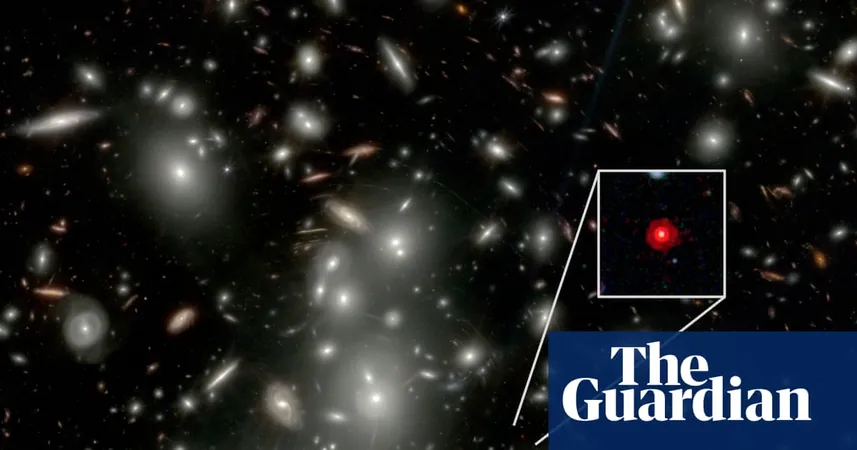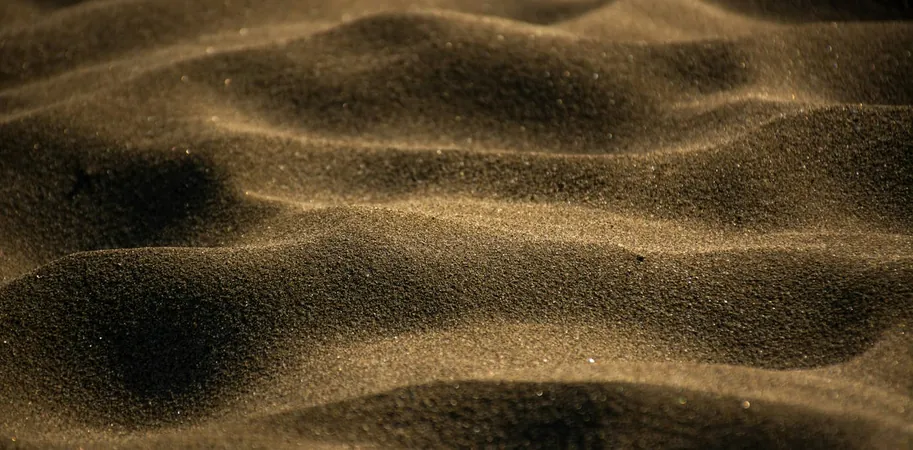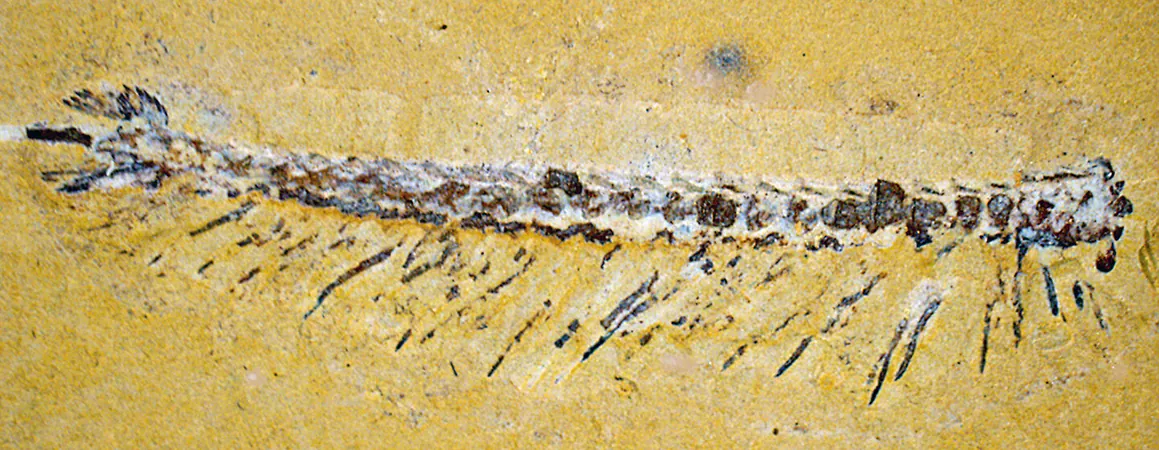
Groundbreaking Discovery: Ancient Black Hole from the Big Bang Found!
2025-09-02
Author: Charlotte
In a stunning revelation, astronomers utilizing the James Webb Space Telescope have detected an ancient black hole that may have formed just moments after the Big Bang. Dubbed a "nearly naked" black hole, this potential primordial black hole could revolutionize our understanding of the cosmos.
Primordial black holes were theorized by the legendary physicist Stephen Hawking, but this is the first time such an entity has been spotted. Traditionally, scientists believed that black holes emerged when the earliest stars exhausted their fuel and collapsed under relentless gravity. However, the latest findings challenge this long-standing narrative.
The observations reveal a colossal black hole with minimal surrounding material, suggesting it came into existence without a galaxy to cradle it. Professor Roberto Maiolino from the University of Cambridge, part of the research team, remarked, "This black hole is nearly naked. This is really challenging for the theories. It seems that this black hole has formed without being preceded by a galaxy around it."
Primordial black holes are theorized to have originated in the chaotic moments right after the Big Bang, as dense regions collapsed under their own gravity. Long considered speculative, these entities now appear closer to reality based on recent data.
The focus of this groundbreaking research is a distant object named QSO1, which dates back more than 13 billion years, making it a window into the universe when it was merely 700 million years old. Astronomers were astonished to find that QSO1 exhibits qualities indicative of an ancient supermassive black hole, defying existing assumptions that black holes begin small and gradually grow by consuming surrounding stars.
Tracking the orbital speed of the surrounding gas and dust revealed that the central black hole holds a mass equivalent to 50 million suns, while its surrounding material comprises less than half that mass. Maiolino highlighted the stark contrast with current observations of black holes in our local universe, where they are typically much less massive than their host galaxies.
Additionally, the material enveloping the black hole is remarkably pure, consisting almost entirely of hydrogen and helium—elements that remain from the Big Bang itself. The lack of heavier elements indicates minimal star formation in the region, supporting the idea that this black hole formed directly rather than through traditional stellar mechanisms.
Maiolino commented on the groundbreaking nature of the findings, stating, "These results are a paradigm change. Here we’re witnessing a massive black hole formed without much of a galaxy, as far as we can say from the data."
Another hypothesis suggests that enormous clouds of gas and dust may have collapsed directly into black holes rather than fragmenting into stars. However, such direct collapse would require precise conditions that the data does not fully support, thus favoring the primordial black hole theory.
Professor Andrew Pontzen from the University of Durham, who was not involved in the study, emphasized the significance of this discovery: "A confirmed primordial origin for black holes would have profound implications for fundamental laws of physics. The ongoing debate is far from over, but a decade from now, the next generation of gravitational wave detectors should provide deeper insights into these cosmic mysteries."









 Brasil (PT)
Brasil (PT)
 Canada (EN)
Canada (EN)
 Chile (ES)
Chile (ES)
 Česko (CS)
Česko (CS)
 대한민국 (KO)
대한민국 (KO)
 España (ES)
España (ES)
 France (FR)
France (FR)
 Hong Kong (EN)
Hong Kong (EN)
 Italia (IT)
Italia (IT)
 日本 (JA)
日本 (JA)
 Magyarország (HU)
Magyarország (HU)
 Norge (NO)
Norge (NO)
 Polska (PL)
Polska (PL)
 Schweiz (DE)
Schweiz (DE)
 Singapore (EN)
Singapore (EN)
 Sverige (SV)
Sverige (SV)
 Suomi (FI)
Suomi (FI)
 Türkiye (TR)
Türkiye (TR)
 الإمارات العربية المتحدة (AR)
الإمارات العربية المتحدة (AR)